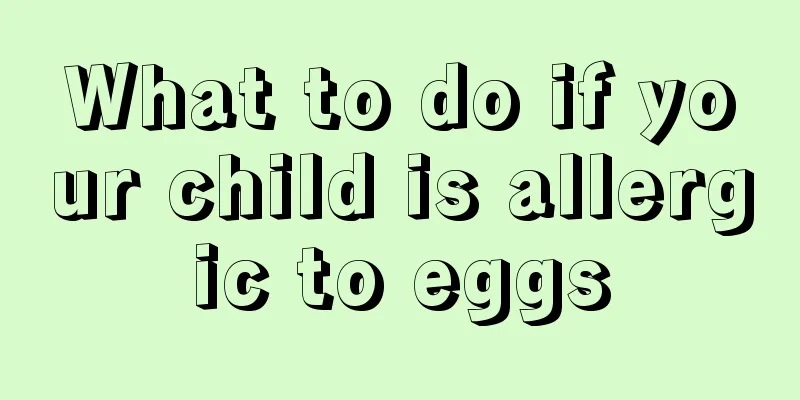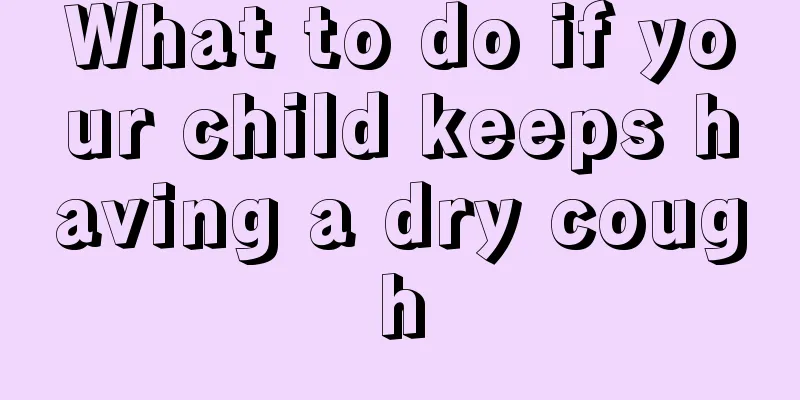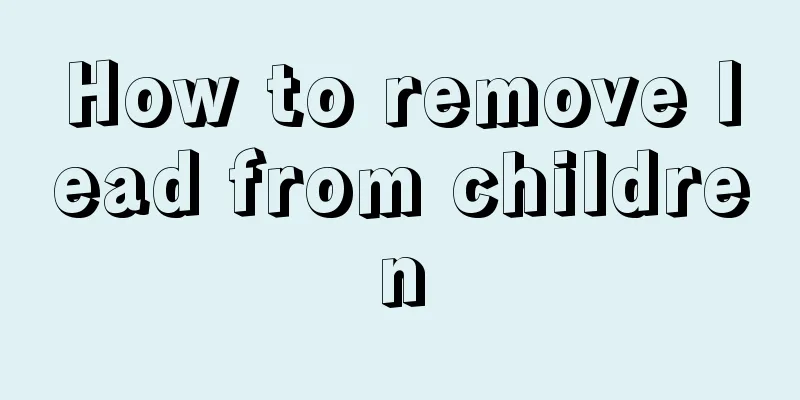What to do if your child is allergic to eggs

|
When the baby is 6 months old, you can start adding complementary foods. Generally, when adding complementary foods to children, we start with rice noodles and then slowly add other foods. Adding food to children in this step-by-step manner is because we are worried that the child will be allergic to a certain food. In fact, many children are allergic to eggs, so you should pay more attention when adding eggs to children. What to do if your child is allergic to eggs In fact, egg allergy is an allergic reaction of the immune system, which is caused by the body's production of antibodies against the eggs eaten. Sometimes, skin contact with eggs can cause an allergic reaction. Medical research has found that many people become allergic to eggs from childhood. According to surveys, about 4% of babies experience allergic reactions such as diarrhea, rash, and vomiting after eating eggs. If your baby is allergic to eggs, the mother should first find out the cause of the allergy. If it is indeed an allergy to eggs, stop feeding eggs immediately. After 7 to 8 months, when the child's intestinal development is further improved and the barrier function against foreign proteins is enhanced, you can try feeding eggs again. When you start feeding eggs again, you should only feed a small amount of egg yolk each time, and observe the child's reaction carefully, slowly increase the amount each time, and increase the amount once every 1 to 2 weeks until the child adapts. Here we would also like to remind all mothers that babies' egg allergies can easily cause rashes. Mothers should pay attention at this time. Try to avoid the baby scratching the area with his hands, do not use hot water or soapy water to clean the area, and do not apply those highly irritating drugs locally. Pay special attention to not applying hormone drugs topically. These are common factors that can easily worsen or recur the disease. Things to note if you are allergic to eggs 1. Find the allergens, but this is often difficult. If you are allergic to eggs, try to avoid eating eggs. 2. When egg allergy causes a rash, try to avoid irritating substances from contacting the skin. Do not wash the affected area with alkaline soap, do not wash the affected area with overly hot water, and do not apply any oil. 3. Wear loose clothes, preferably made of pure cotton. Tips: To prevent your baby from being allergic to eggs, you should start with a small amount of eggs and gradually increase the amount. If there is no allergy, you can increase the amount after 7-10 days. If your baby is allergic to egg white, you can only give him egg yolk, or give him a small amount of egg white first and then gradually increase the amount. If your baby is constipated, you may give him honey to help relieve constipation in order to prevent allergic food from staying in the intestines for too long. |
<<: What to do if something gets into your child's nose
>>: What to do if your child has chickenpox and a fever
Recommend
How to solve the problem of children's hair becoming yellower and yellower
The problem of children's hair becoming incre...
Causes of pain below the ribs in children
Children generally have low physical fitness, and...
What should children eat if they have a hoarse throat?
Many parents often find that their children have ...
What vaccines should a 2-month-old baby get?
In modern life, medical scientists have invented ...
What should we do if the baby eats too much?
What should we do if our baby eats too much? Many...
What are the symptoms of baby's milk aversion?
For many infants and young children, there will b...
How to treat children's tooth decay now
How do we treat tooth decay in children nowadays?...
What are the dangers of teenage obesity?
As a growing generation, teenagers are the sun of...
Is it okay for children to eat fish roe?
Fish roe has many benefits and is a common food i...
What to do if a child has a fever and coughs
Coughing is a common disease among children, but ...
How to relieve water in baby's ears
There are many common problems for babies. When s...
What are the methods to prevent prickly heat in babies?
In the hot summer, babies will sweat a lot. If pa...
How to treat asthma caused by cough in children
Children's physical constitution is relativel...
IQ of premature babies
There is a rumor among the people that premature ...
Can children eat Ganoderma lucidum spore powder?
Ganoderma lucidum, a traditional medicinal materi...









